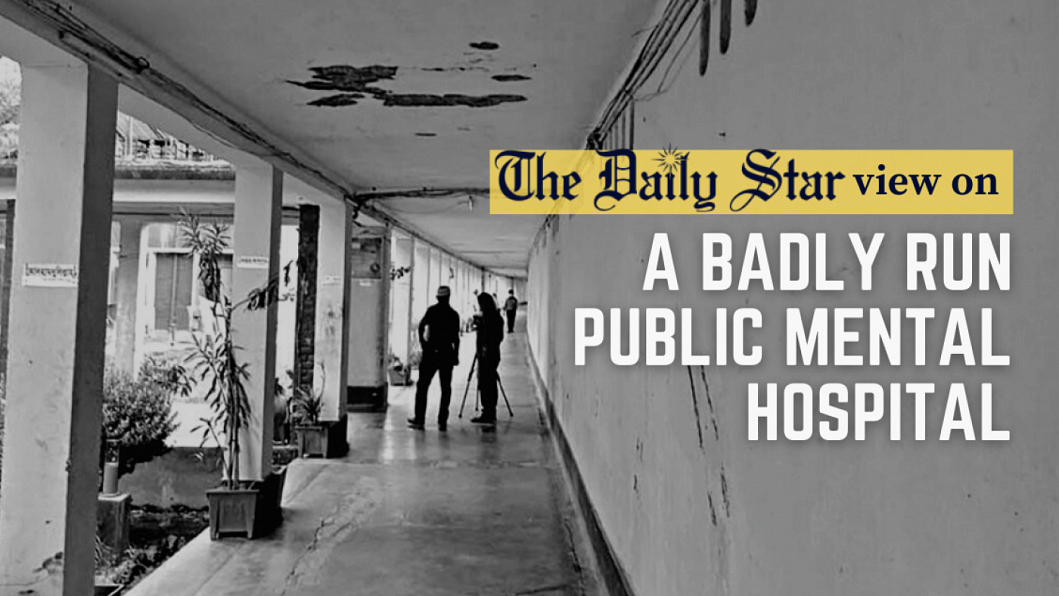A Hospital on Life Support

It is extremely disheartening that Pabna Mental Hospital, the oldest such facility in the country, remains in a terrible shape. The 500-bed state-run hospital has been struggling to provide patients with the most basic of requirements including nutritious meals, prescribed medication, and specialised treatment. And as per families of former patients, the standard of its medical care is not good enough to ensure that patients receiving treatment there would fully recover.
Things had, in fact, gotten so bad that, in early September, the then acting director of the hospital issued an order to stop admitting new patients, citing a supply shortage of food, medicine, and other necessities. Although the order was withdrawn a day later, after the health directorate assured that it would provide the necessary support, things have not improved much.
According to a report by this newspaper, the main reasons behind the hospital's dismal condition are the presence of an unscrupulous contractor syndicate responsible for food and medicine supply, a lack of specialist doctors, and the pervasive interference of brokers. While the hospital is supposed to follow a diet plan which includes meat and vegetables, patients have alleged that its food quality is substandard. In fact, the food quality is so poor that a large amount of food has to be dumped as patients cannot eat it. And this has largely been happening as the syndicate of unscrupulous contractors has been consistently getting their work order using their influence. They reportedly embezzle money by supplying subpar food and inadequate medicine. When the hospital decided to make changes to the traditional tendering process to break up the syndicate, one of the companies involved filed a lawsuit, which has further disrupted the supply of food and medicine.
Additionally, the facility also lacks provisions for advanced care due to an acute shortage of specialised doctors and other hospital staff. Of the 31 posts of doctors, only 10 are currently occupied. And out of the 643 positions at the hospital, 176 are presently vacant. With such a huge manpower shortage, it is not possible for the facility to provide quality treatment.
Under the circumstances, the health authorities need to take a long and hard look at themselves. Surely things have not come to this point in a day or two, but rather over a prolonged period, thanks to their negligence. The fact that mental health patients have so few options for treatment in our country – and that the country's oldest mental health institute is in such shambles – speaks volumes about their terrible performance. And for that, the government must hold the relevant authorities to account. Moreover, the government should immediately provide the Pabna Mental Hospital with all necessary funding and support to get it back on its feet, so it can provide quality care to mental health patients.

 For all latest news, follow The Daily Star's Google News channel.
For all latest news, follow The Daily Star's Google News channel. 







Comments